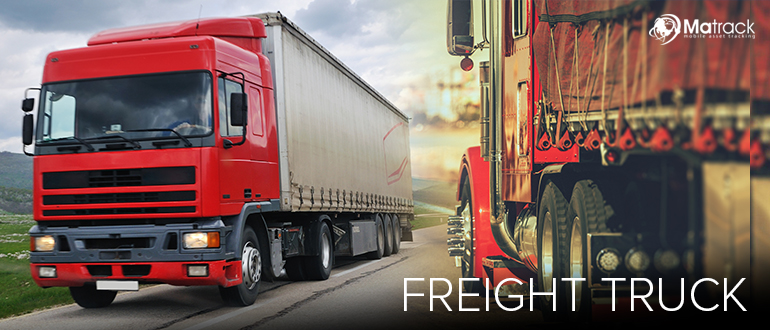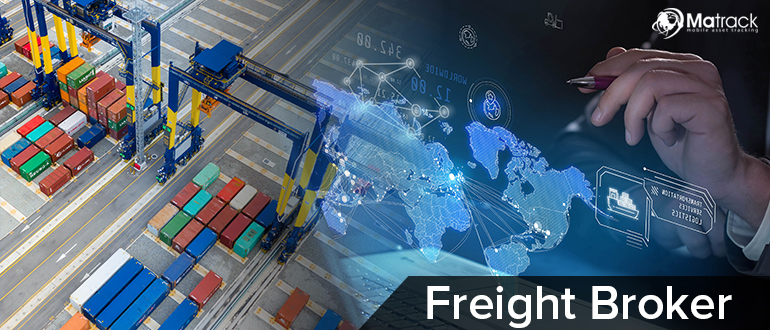Key Takeaways
- Freight truck is a heavy-duty vehicle that transports goods like raw materials, machinery, and packages over different distances.
- For specific cargo needs, there are different types of freight trucks, such as flatbeds, reefers, dry vans, step decks, box freight, semi-trailers, and tankers.
- Freight trucks offer benefits such as reaching remote areas, carrying various cargo, saving costs, and delivering faster.
- Advanced tracking with GPS and safety features helps manage trucks better and ensures safer deliveries.
What Is a Freight Truck?
A freight truck is a heavy-duty vehicle made for moving goods and materials between locations. It’s an essential part of logistics, helping businesses connect suppliers, warehouses, and customers.
Freight trucks carry all kinds of cargo, like small packages, raw materials, or large machinery. They are built to handle short or long trips, making them a versatile and reliable transport option.
7 Types of Freight Trucks
Flatbed Freight Truck
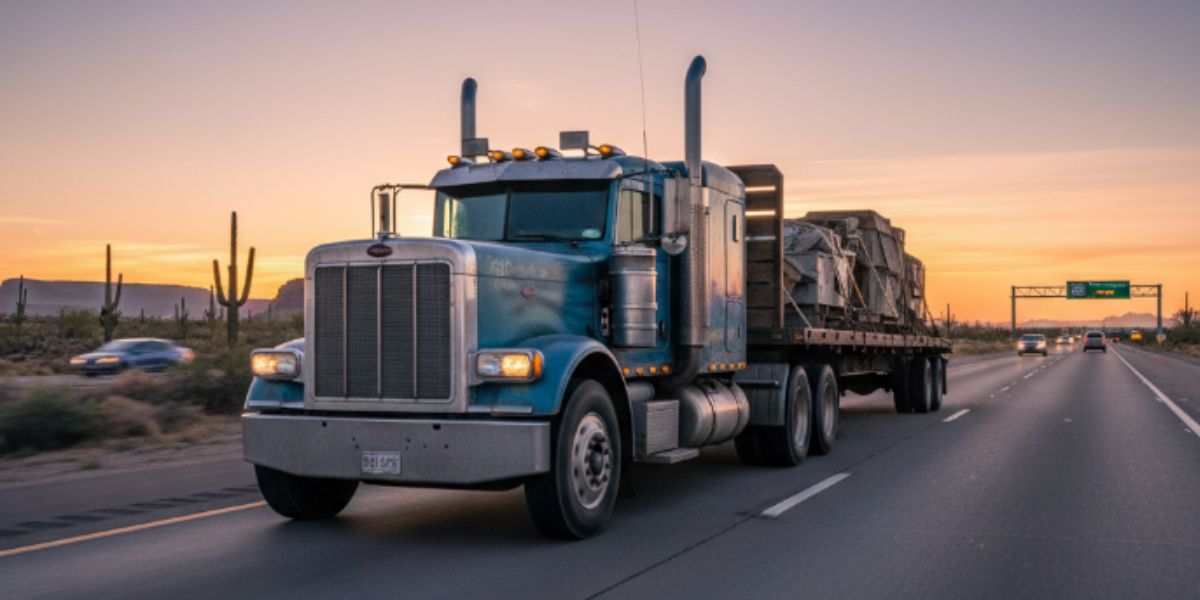
Flatbed freight trucks are perfect for large, heavy, or oddly shaped items like machinery and construction materials. The open platform allows for easy loading and unloading from any direction, making it highly convenient for oversized loads.
Cargo is kept secure with strong straps, ensuring it stays in place during transport. Some flatbed trucks also come with more extended platforms for items that are extra long or bulky.
Step Deck Freight Truck
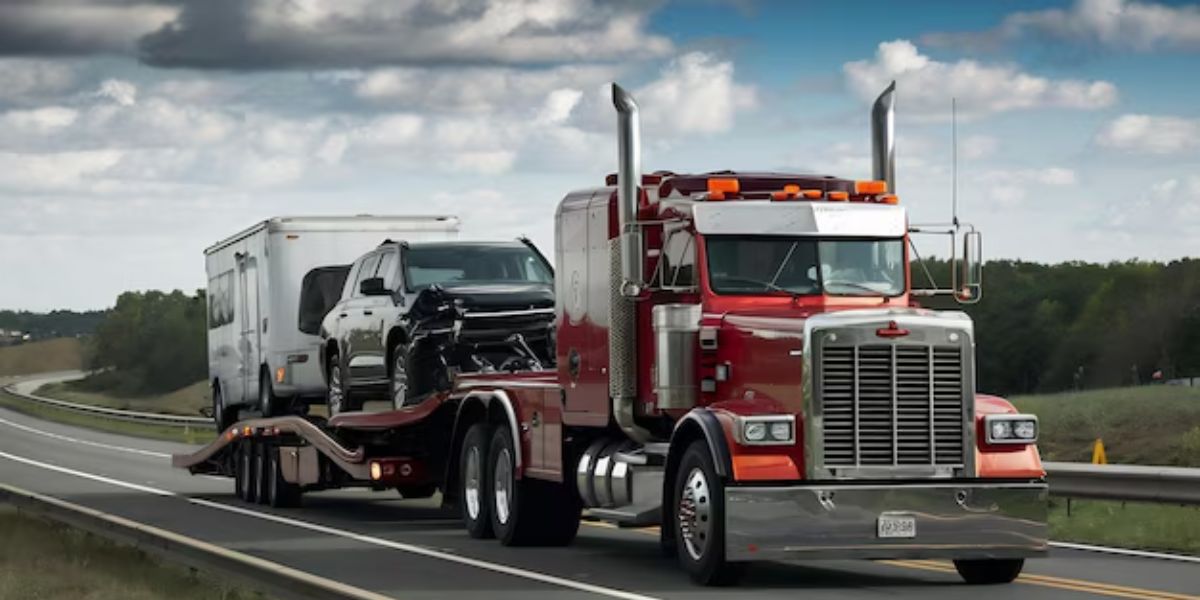
Step deck freight trucks are designed to transport tall cargo that won’t fit on standard flatbeds. With a lowered deck, they allow tall items to pass safely under bridges and other height-restricted areas.
This type of truck is beneficial for moving large industrial machines or equipment. The lower deck height also makes loading and unloading much more straightforward.
Dry Van Freight Truck
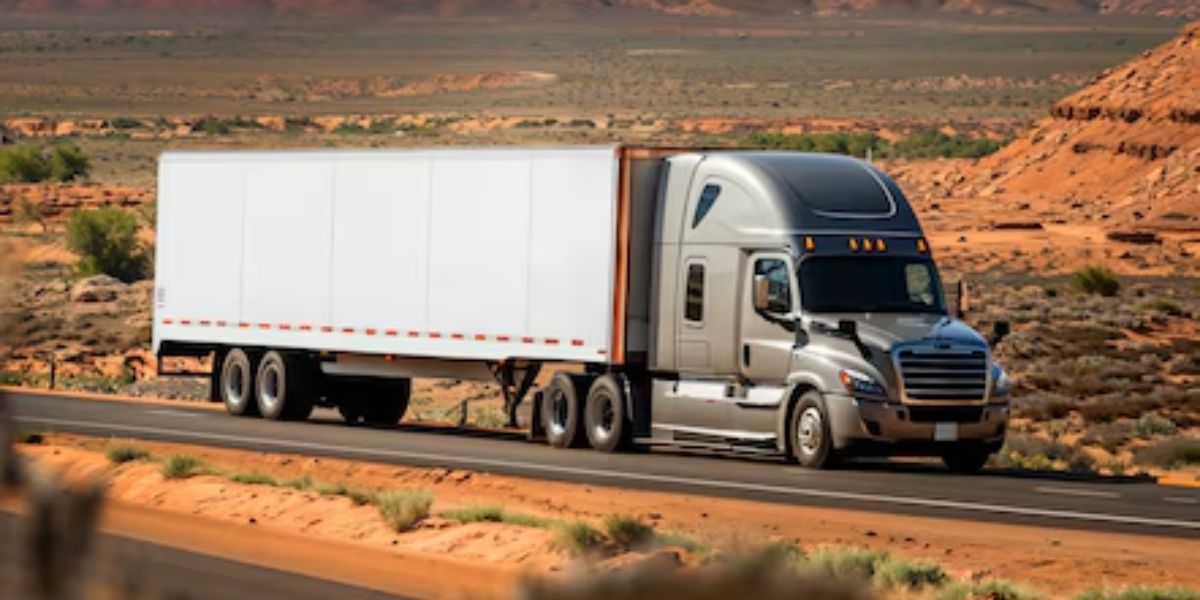
Dry van freight trucks have a fully enclosed trailer, protecting goods from rain, dust, and damage. They’re great for transporting packaged items, pallets, or anything that needs to stay secure during transit.
This truck is commonly used for shipping everything from household products to industrial machinery. Its sealed design provides peace of mind for sensitive or high-value shipments.
Box Freight Truck
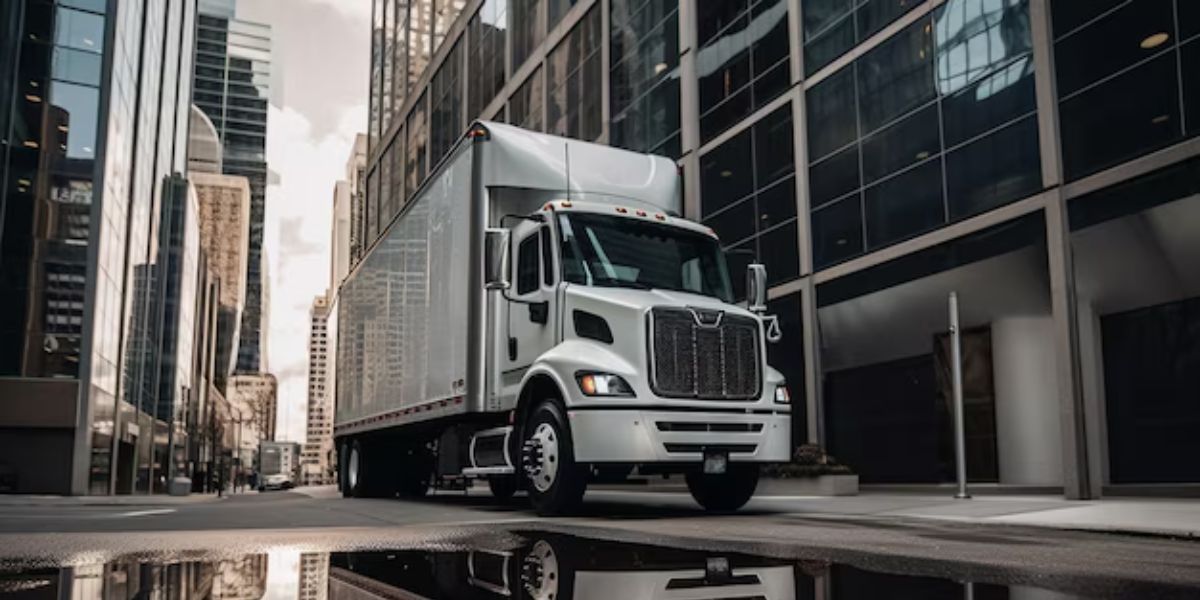
Box freight trucks come with a rigid, enclosed container mounted on the truck frame. They’re commonly used to transport items like furniture, appliances, or perishable goods that need extra protection.
The container is available in various sizes to suit different loads, from small deliveries to large shipments. Some models even feature a door connecting the driver’s cabin to the cargo area for convenience.
Reefer Freight Truck
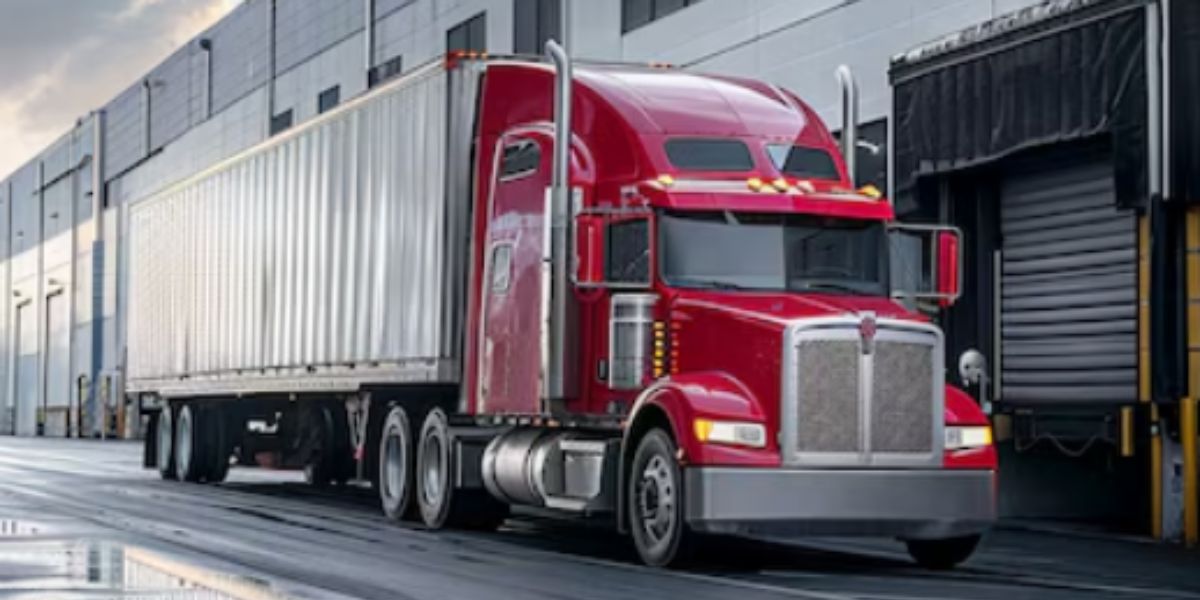
Reefer freight trucks are built to transport perishable goods such as fresh produce, medicine, and frozen foods. The refrigerated compartment ensures everything stays at the right temperature to prevent spoilage.
Advanced temperature controls allow adjustments during the journey if needed. While they cost more to operate, they are essential for industries dealing with temperature-sensitive goods.
Tanker Freight Truck
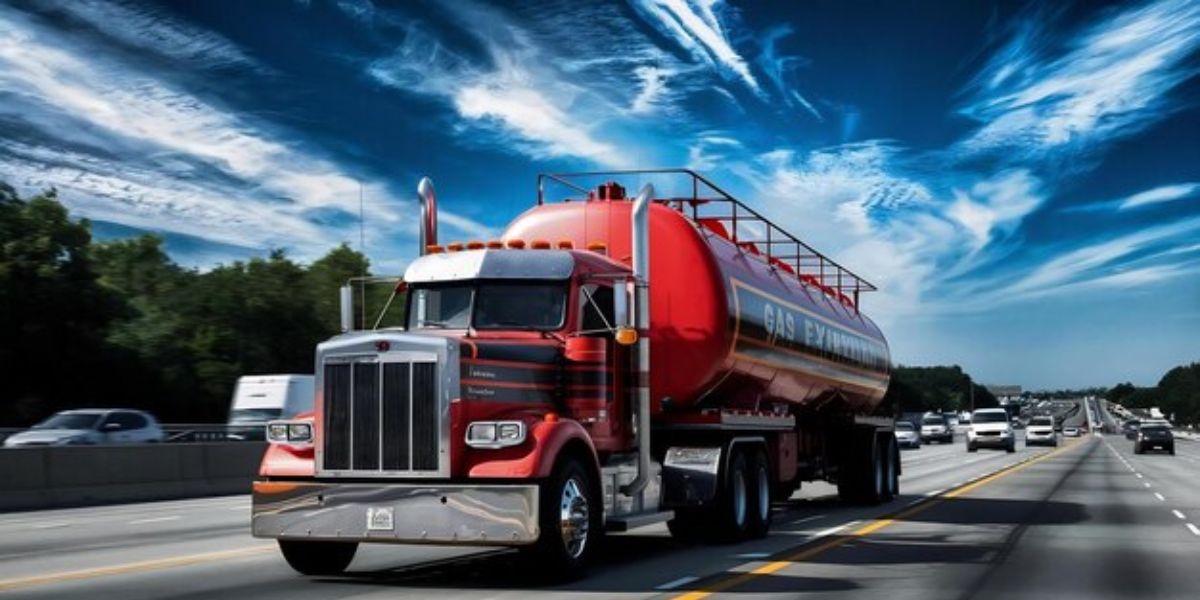
Tanker freight trucks specialize in liquids like fuel, chemicals, and even beverages. Their cylindrical tanks are customized depending on the cargo, with options for insulation, refrigeration, or pressurization.
These trucks require experienced drivers to handle the risks of transporting hazardous or delicate materials. Tankers are critical for industries that depend on the safe and efficient delivery of liquids.
Semi-Trailer Freight Truck
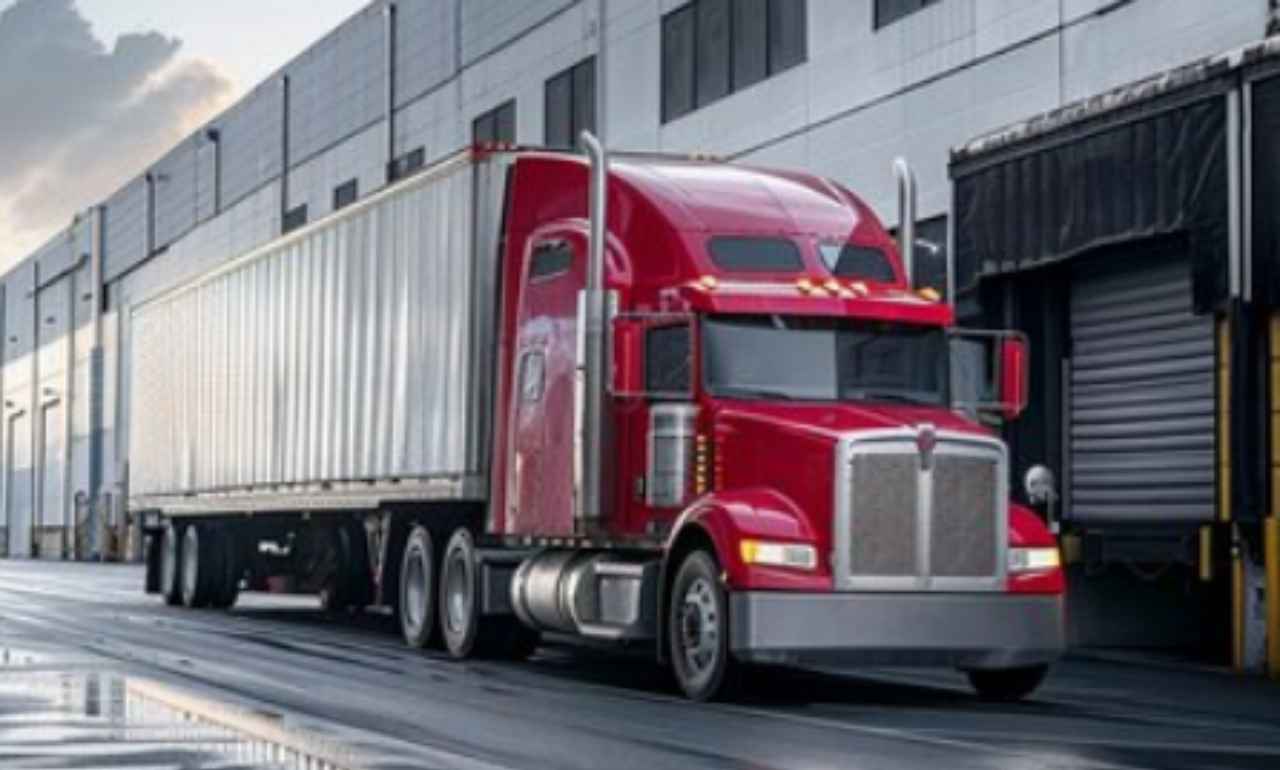
Semi-trailer freight trucks are versatile and designed to haul large quantities of goods. The trailer, which lacks a front axle, connects to the car and can be detached for easy handling.
It is often used for bulk transport, including raw materials or finished products. Some configurations even allow multiple trailers to be connected, maximizing efficiency for large-scale operations.
Benefits of Freight Trucks
Accessibility
Accessibility is one of the biggest advantages of freight trucks, as they can deliver goods to remote and underserved areas. This ensures businesses can reach customers in locations where other transport modes, like rail or air, cannot go.
Flexibility
Flexibility allows freight trucks to handle different types of cargo, from small parcels to heavy machinery. They are suitable for a wide range of shipping needs, accommodating various sizes and weights.
Cost-Effectiveness
Cost-effectiveness makes freight trucks an economical choice for short to medium distances. They help businesses save on transportation costs without compromising efficiency.
Speed
Speed is a key benefit of freight trucks, as they take goods directly to their destination. This eliminates delays caused by transshipments and ensures faster delivery.
How to Choose Freight Trucks
Type of Cargo
Start by identifying what you’re transporting. For fragile items, use a dry van truck; oversized goods need a flatbed, and temperature-sensitive cargo like food requires a refrigerated (reefer) truck.
Load Capacity
Make sure the truck can handle the size and weight of your goods. Overloading can damage the cargo and lead to fines or delays.
Distance and Terrain
Consider how far the goods need to travel and the type of roads. Long trips need fuel-efficient trucks, and rough roads require firm suspension and durable tires.
Cost and Budget
Pick a truck that fits your budget. Look at fuel, maintenance, and driver costs to find the most affordable option for your needs.
Special Features
Look for extra features like GPS tracking, temperature control, or remote monitoring. These features can make the transport safer and more reliable.
Compliance with Regulations
Make sure the truck meets all legal requirements, such as weight limits and safety standards. For hazardous goods, choose a truck designed to transport them safely.
Also check out: What is Freight Factoring?
Challenges Faced by Freight Trucks
- Traffic Congestion: Heavy traffic in urban areas often causes delays, making it harder to stick to delivery schedules.
- Fuel Costs: Rising fuel prices increase the cost of running freight trucks, putting pressure on budgets.
- Environmental Impact: Freight trucks produce emissions that contribute to air pollution. To address this, many companies are switching to electric or hybrid models.
- Regulatory Compliance: Strict rules on weight limits, driver hours, and safety standards add challenges for trucking companies to manage efficiently.
Advanced Tracking Features in Freight Trucks
Advanced tracking systems monitor truck locations and movements in real-time. They help manage routes, communicate with drivers, and reduce downtime and risky driving.
GPS-enabled systems like Matrack Fleet Tracker provide real-time updates on routes, travel times, and delays. This helps fleet managers improve logistics and use resources more efficiently.
Modern trucks also include driver alert systems and backup cameras for added safety. Tracking devices make it easier to control vehicles, reduce risks, and stay compliant with safety rules.
Conclusion
Freight trucks are essential for moving goods over short and long distances. Different types, like flatbeds and reefers, make it easy to transport all kinds of cargo, from small packages to heavy machinery.
Freight trucks are cost-effective, reliable, and can deliver goods quickly, even to remote areas. GPS tracking and safety features ensure better management and safer transportation.
